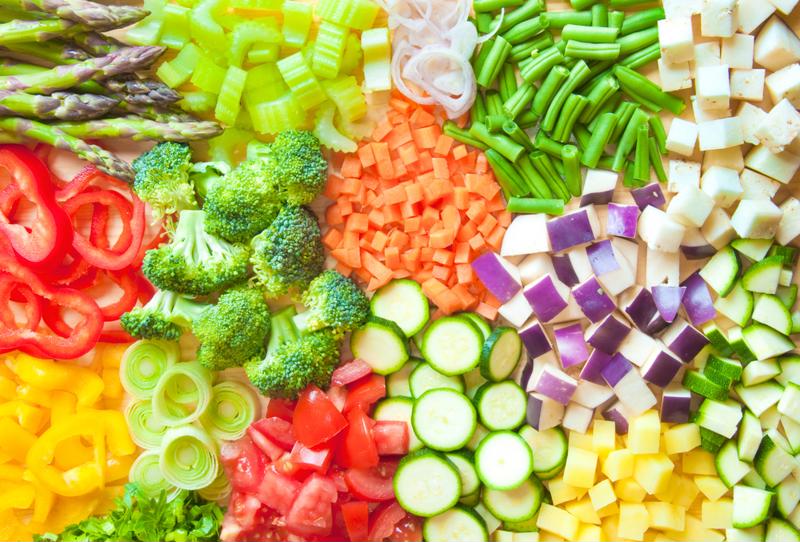Proper nutrition is critical to optimal wellness. Eating a variety of fruits, vegetables, organic whole grains, nuts and seeds is a habit that can ensure you look and feel your best as you age. But does the way you prepare these foods make them better or worse for you? While the Hallelujah Diet focuses mostly on promoting raw, plant-based eating, we still break down our regimen into a daily consumption of 85 percent living foods and 15 percent cooked foods. That means both ways are beneficial and important for optimal health.
Understanding the Difference
When your diet consists mostly of fruits and vegetables, you’re giving your body an abundance of antioxidants, vitamins and minerals to fuel your system and boost your energy. While cooked vegetables are certainly beneficial, raw options offer the most nutrients because they avoid the heating and cooking process.
Unfortunately, heating reduces the nutritional value in vegetables and can also decrease the enzymes within the foods. While that is a downfall, there is an upside to eating cooked vegetables. For instance, they have more calories and include certain important phytochemicals like carotenoids, lutein and lycopene.
 Eat plenty of raw vegetables on your plant-based journey
Eat plenty of raw vegetables on your plant-based journeyIncorporating Raw and Cooked Foods
Going off of our ratio of 85 percent living foods and 15 percent cooked foods, the Hallelujah Diet ensures you get just the right amount of nutrients by combining the different options throughout your day. Remember, the amount of living foods you eat doesn’t need to be limited to 85 percent; you can consume even more raw, plant-based options to boost your energy, revive your health and help you stay satisfied. Here’s a broad range of foods you can eat while following a primarily raw, plant-based regimen like the Hallelujah Diet:
Fruit intake should be no more than 15 percent of your diet in any given day. This can include all types of raw and dried fruits.
Vegetables are the best part of the Hallelujah Diet! You can enjoy as many raw and cooked veggies as you want during the day, just be sure to prioritize raw options.
Raw nuts and seeds are loaded with beneficial nutrients and healthy fats. Eat lots of raw almonds, tahini and sunflower seeds. Be sure to eat walnuts and macadamia nuts in moderation, as these nuts are high in calories and fat content.
Eat plenty of beans and grains such as green beans, peas, sprouted garbanzo beans, sprouted lentils, sprouted grains, soaked oats, millet, raw muesli, dehydrated granola or crackers and raw ground flaxseed.
Instead of choosing dairy, stick to rice, coconut and nut milks! Other beverages should be limited to distilled water and extracted vegetable juices.
Joining us on the path to better health and well-being doesn’t have to be difficult. You can exchange your unhealthy ways for a greater life with ease. Check out our Get Started Guide to learn more about the Hallelujah Diet and how you can transition to better habits and turn your life around today!
The post Cooked vs. Raw: What’s the Difference? appeared first on Plant-Based Diet - Recipes & Weight Loss Supplements | Hallelujah Diet.
Hallelujah Acres chairman
Comments
Post a Comment